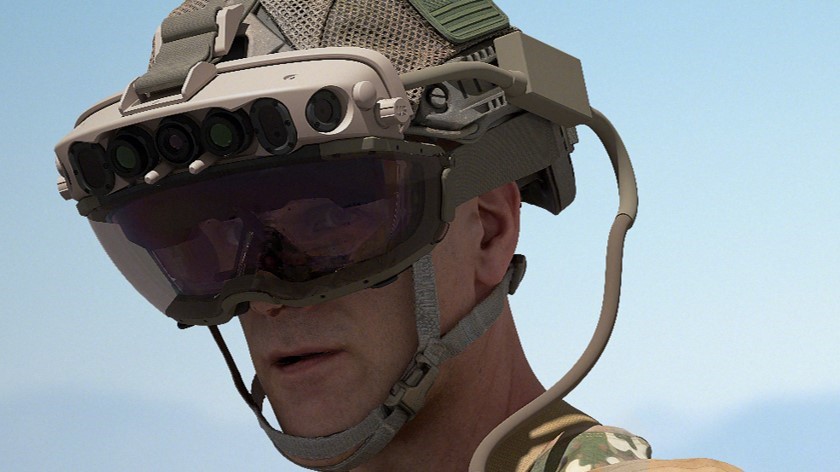Microsoft’s augmented reality headset the HoloLens has been in the works for years now, but it’s been a while since we’ve heard any news. We were seeing demos of it way back in 2015 (opens in new tab), but Microsoft has been pretty quiet on the tech in recent years when it comes to a consumer release.
What we’ve heard tons about is Microsoft’s deal to supply the United States Army with HoloLens tech. We first got wind of the deal back in 2018 (opens in new tab) with talks of a $480 million contract to help “increase lethality” of combat missions. It wasn’t until 2021 that Microsoft officially signed a much pricier $22 billion dollar contract (opens in new tab) with the army for military grade HoloLens supply.
It’s taken a fair while to get there but now we’re finally seeing that contract start to deliver. According to Bloomberg (opens in new tab), Microsoft has begun shipping the first lot of military HoloLens headsets.
There have been delays with the deal thanks to the system needing tweaks to be fully army-ready. Though there have been reports of troubles within Microsoft’s HoloLens team (opens in new tab) and leadership (opens in new tab) for some time that likely didn’t help move things along. Still, that’s a big deal and the US Army clearly wants the tech.
The HoloLens augmented reality tech provides a heads-up display giving the wearer additional information via a system called IVAS, which stands for Integrated Audio Visual System. It’s been compared to what a pilot in a jet might see, built into a helmet for soldiers that also includes night vision.
The display could help in identifying structures, providing distances, highlighting moving objects, and so on. It sounds a lot like a videogame UI, which is a little concerning when you remember these are designed for use in actual combat.
Microsoft has defended its choice to work with the United States Military (opens in new tab). CEO Satya Nadella said. “We made a principled decision that we’re not going to withhold technology from institutions that we have elected in democracies to protect the freedoms we enjoy,” regarding the decision, following employee protests (opens in new tab). It sure would be nice to see this tech used for more things like sending doctors to the ISS (opens in new tab) rather than warfare.


